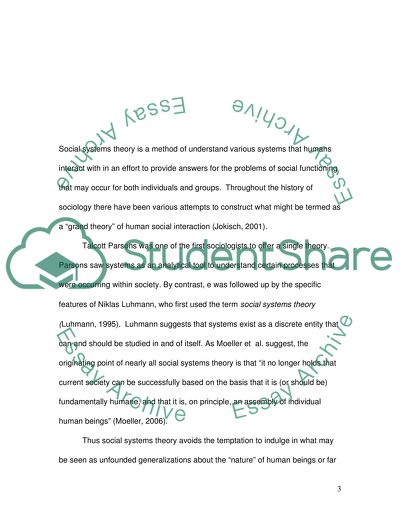Cite this document
(Role of Social Systems Theory and the Family within Society Essay, n.d.)
Role of Social Systems Theory and the Family within Society Essay. https://studentshare.org/social-science/1513913-role-of-social-systems-theory-and-the-family-within-society
Role of Social Systems Theory and the Family within Society Essay. https://studentshare.org/social-science/1513913-role-of-social-systems-theory-and-the-family-within-society
(Role of Social Systems Theory and the Family Within Society Essay)
Role of Social Systems Theory and the Family Within Society Essay. https://studentshare.org/social-science/1513913-role-of-social-systems-theory-and-the-family-within-society.
Role of Social Systems Theory and the Family Within Society Essay. https://studentshare.org/social-science/1513913-role-of-social-systems-theory-and-the-family-within-society.
“Role of Social Systems Theory and the Family Within Society Essay”. https://studentshare.org/social-science/1513913-role-of-social-systems-theory-and-the-family-within-society.


